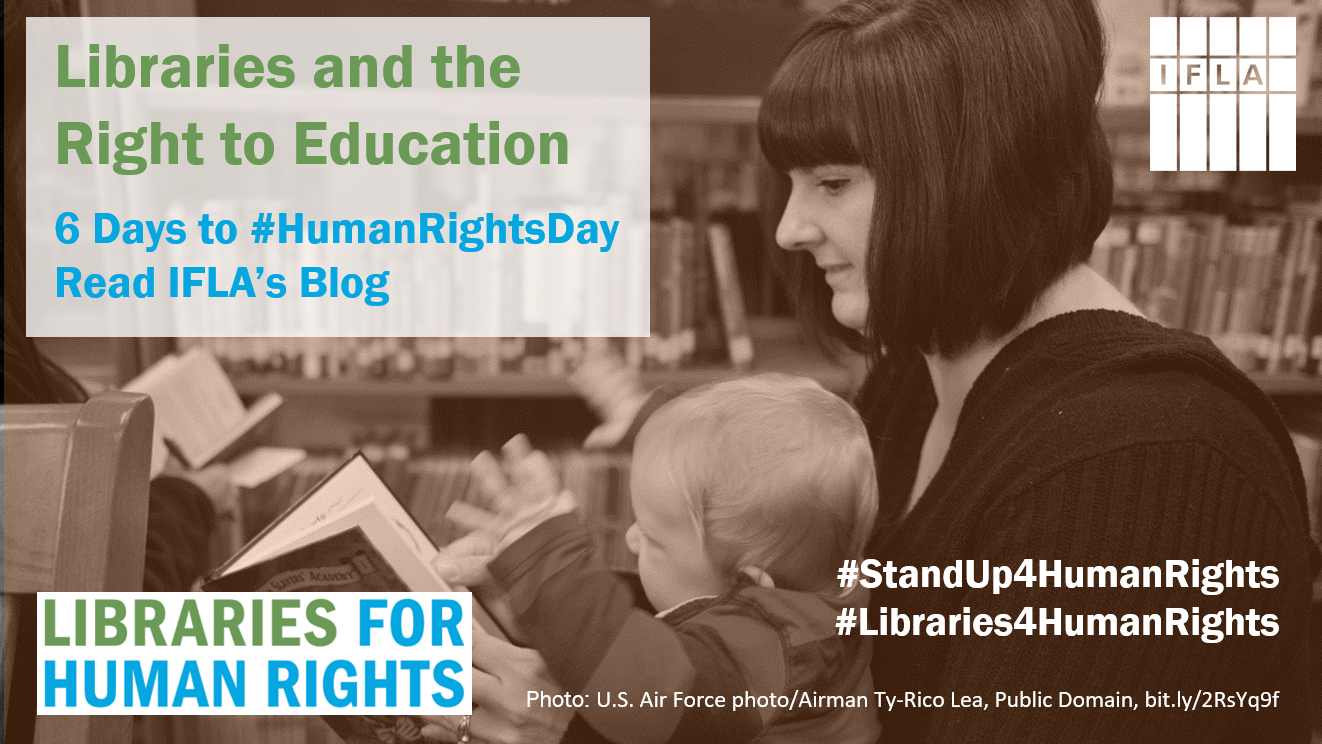The forthcoming update to the IFLA-UNESCO Public Library Manifesto re-examines the role of the public library – expanding on previous versions to more thoroughly reflect the ways libraries serve their communities today.
This update was informed by a global survey, as well as ongoing consultations with UNESCO’s Information For All Programme
UNESCO has been facilitating critical input from its member states represented on the IFAP Bureau. Upon completion of this process, the updated Manifesto will be ready for action as a cornerstone of library advocacy.
Key concepts that have been added to this updated version include:
Sustainable Development
As publicly accessible spaces for the exchange of information, the sharing of culture, and the promotion of civic engagement, libraries should be considered essential agents for sustainable development.
The updated Manifesto upholds that, through their activities relating to information, literacy, education, and culture, libraries contribute to the United Nations’ Sustainable Development Goals and the construction of more equitable, humane, and sustainable societies.
This is especially pertinent when concerning the public library’s role in ensuring inclusion, access, and cultural participation for marginalised communities, Indigenous peoples, and users with special needs.
Libraries in Knowledge Societies
The ways in which people access and use information have evolved. The updated Manifesto reflects the public library’s role in enabling knowledge societies through helping all members of society access, produce, create, and share knowledge.
This includes an increased focus on remote and digital access to information and materials, as well as access to the competencies and connectivity required to bridge the digital divide.
The previous version upholds the public library as a local gateway to knowledge, providing a basic condition for lifelong learning, independent decision-making and cultural development of the individual and social groups.
The update expands on this, adding that libraries underpin healthy knowledge societies through providing access to and enabling the creation and sharing of knowledge of all sorts, including scientific and local knowledge without commercial, technological or legal barriers.
It further states that, in the digital era, copyright and intellectual property legislation must ensure public libraries the same capacity to procure and give access to digital content on reasonable terms as is the case with physical resources.
The Evolving Mission of Public Libraries Today
Below you will find an overview of key concepts that have been expanded on in the updated Manifesto.
Previous Versions |
The Update |
| Stimulating the imagination and creativity of children and young people. | Providing opportunities for personal creative development, and stimulating imagination, creativity, curiosity, and empathy
|
| creating and strengthening reading habits in children from an early age; | Creating and strengthening reading habits in children from birth to adulthood
|
| Access to information and material | Providing services to their communities both in-person and remotely through digital technologies allowing access to information, collections, and programmes
|
| Awareness of cultural heritage, appreciation of the arts, scientific achievements | preservation of and access to cultural expressions and heritage, appreciation of the arts, scientific achievements, research and innovations, as expressed in traditional media, as well as digital material
|
| Ensuring access for citizens to all sorts of community information | Ensuring access for all people to all sorts of community information and opportunities for community organising, in recognition of the library’s role at the core of the social fabric
|
| Ensuring inclusivity, especially relating to marginalised communities | Preservation of, and access to, local and Indigenous data, knowledge, and heritage (including oral tradition), providing an environment in which the local community can take an active role in identifying materials to be captured, preserved and shared, in accordance with the community’s wishes. |
| Awareness of scientific achievements
|
providing communities with access to scientific knowledge, such as research results and health information that can impact the lives of their users, as well as enabling participation in scientific progress.
|
| Facilitating the development of information and computer literacy skills
|
initiating, supporting and participating in literacy activities and programmes to build reading and writing skills, and facilitating the development of media and information literacy and digital literacy skills for all people at all ages, in the spirit of equipping an informed, democratic society;
|
